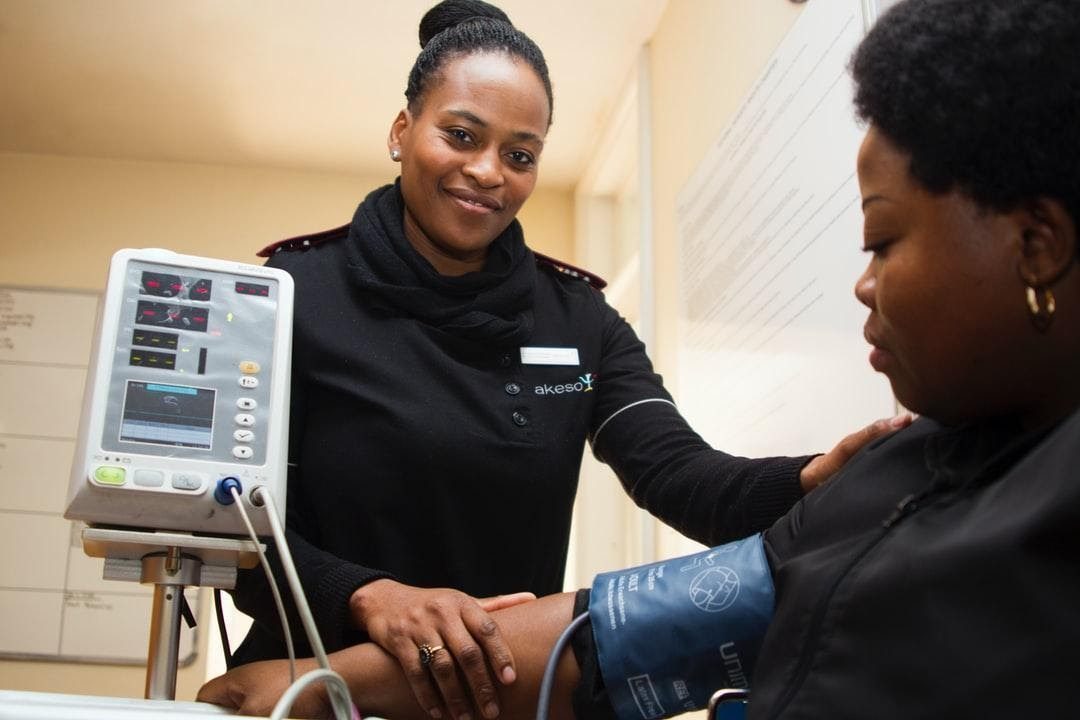Medical Assistant
If you want a meaningful career in healthcare, Medical Assisting is a great starting point. As a Certified Clinical Medical Assistant, you’ll find more job openings and higher pay potential. At MedCerts, we help you train and get your Medical Assistant Certification online to start working in as little as 6 months. Fill out the form below and an advisor will reach out to you to build your education plan today!
Ready to begin your career journey or have more questions? Connect with an Education Consultant today!
What does a Medical Assistant do?
A Medical Assistant helps with administrative and clinical duties in the healthcare field. A Clinical Medical Assistant, in particular, acts as a supporting staff member working alongside doctors and nurses to educate and help with patient care. Due to the fast-paced nature of healthcare, Clinical Medical Assistants are a vital part of the day-to-day operations of healthcare facilities. Depending on state regulations and laws, duties may vary.


Clinical Medical Assistant Duties.
- Note patient history and personal information
- Help doctors with patient exams
- Measure vital signs like blood pressure
- Give patients injections or medications per doctor orders (as permitted by state law)
- Prep blood samples for lab tests
- Sterilize medical equipment
- Update patient details in medical records
- Schedule patient appointments
- Change sutures, dressings
Medical Assistant Certifications.
Depending on your state, you may need a Medical Assistant certification to land a job. With so many job seekers applying for medical assistant positions, applicants with a national certification like a Certified Clinical Medical Assistant (CCMA) tend to stand out.*
Today’s Medical Assistants are expected to take on additional responsibilities – chief among them related to and around the practices of Phlebotomy and Electrocardiography (ECG/EKG).
You can excel in your Certified Medical Assistant career with the added high-demand skills of Phlebotomy and/or EKG by taking our Clinical Medical Specialist or Clinical Medical Professional programs.
*Additional requirements are necessary to gain Phlebotomy certification in California and Washington that the MedCerts program cannot satisfy.


Online Medical Assistant Programs.
At MedCerts, we offer three different online Medical Assistant program options. The first, Medical Assistant, is a 28-week program where you learn the skills to gain the Certified Clinical Medical Assistant (CCMA) and Certified Medical Administrative Assistant (CMAA) certifications.
The second Medical Assistant program we offer is the Clinical Medical Specialist. This program is 32 weeks and trains you not only in the skills of a Medical Assistant but also a Certified Phlebotomy Technician (CPT) – preparing you for the CCMA, CMAA and CPT certification exams.
Our third and final online Medical Assistant program, Clinical Medical Professional, is 36 weeks and teaches you the skills of a Medical Assistant, Phlebotomy Technician and EKG Technician. This program prepares you to earn the CCMA, CMAA, CET and CPT certifications.
Talk to an advisor to build your education plan!Get the Most of Your Medical Assistant Career.
If your career goals include moving beyond the Medical Assistant path, seeking new certifications starts to make a lot of sense. While medical assisting is a rewarding path all on its own, for many, it’s a stepping stone to other healthcare industry jobs that offer more responsibility and pay.
Having a Phlebotomy and/or EKG certification is a perfect match for someone in the Medical Assistant role. With your experience as a Medical Assistant and dual certifications, you’re an even more attractive candidate for prospective employers. And one of the greatest advantages of being a “dual-threat” is the potential for an increase in salary and having the ability to serve as either a CPT or CET makes you an important member of any healthcare team. These additional certifications offer quite a few unique job opportunities, ranging from Cardiovascular Technician to Medical Laboratory Technician to Emergency Room/Department Technician.


Employment Opportunities for Medical Assistants.
Medical assistants typically work in a doctor’s office or a hospital. According to the BLS, more than half of medical assistants in 2019 worked in physicians’ offices. However, around 15% of them worked in private, state and local hospitals. Smaller percentages of medical assistants worked in outpatient care facilities and chiropractors’ offices.
Since there are so many healthcare facilities that need certified medical assistants, you have a lot of workplace options to choose from. With the right training, you’ll be able to work in a range of medical settings—from clinics to outpatient facilities—around the country.
Specialization opportunities include:
- Podiatric medical assistants
- Clinical medical assistants
- Administrative medical assistants
- Ophthalmic medical assistants
- Optometric assistants
Ready to start your career? Talk to an advisor today!
Medical Assistant Salary and Hourly Wage.
Certification as a medical assistant plays a part in the determination of their salary. Medical assistants who have obtained certification have larger salaries compared to those without. Employers are willing to hire non-certified clinical medical assistants at considerably lower wages. These individuals typically earn just a little over $10/hour and are included among the lowest-paid MAs. According to the Bureau of Labor Statistics, the median pay for medical assistants in 2018 was $16.16 per hour or $33,610 per year.
While we list the potential Medical Assistant salary range as $24,000-$46,000, that same article on theemedicalassistants.com provides a valuable salary list that’s based on years of experience:
- Less than 1 year: $29,000
- 1-4 years $30,000
- 5-9 years: $32,000
- 10-19 years: $34,000
- 20-plus years: $36,000


Medical Assistant Career Outlook.
Medical assisting is one of the most popular entry-level jobs in healthcare. The pay is good and the demand is high. According to BLS.gov, the employment of Medical Assistants is projected to grow 19% from 2019 to 2029. Due to an aging baby-boomer population, the demand for preventative medical services will grow. As a result, physicians will hire more Medical Assistants to perform routine admin and clinical duties, allowing physicians to see more patients.
Because medical assisting is such a fast-growing field, there’s a huge demand for individuals with the highest professional standards. With the successful completion of a certification, you prove to potential employers you have the knowledge needed to properly work alongside physicians and other healthcare professionals caring for patients.
Online Medical Assistant Program vs. In-Person.
If you’ve made the decision to go back to school, you’re probably looking for flexibility and convenience. With the number of online programs rapidly growing, employers have increasingly begun to accept and view online credentials favorably. Many feel it shows a great degree of discipline to be able to juggle work, family and school. Aside from that, an online program offers you an escape from many of the hassles associated with taking a course in a traditional classroom setting. Here are some benefits of taking online Medical Assistant courses:
- Scheduling flexibility
- Typically lower costs
- A more comfortable learning environment
- Important information is always accessible
- No commute or scheduled class times

How To Get a Medical Assistant Certification Online.
- Match with an Education Consultant & create your Medical Assistant career plan
- Build Medical Assistant career skills through our interactive learning & personalized support
- Gain confidence with our exam prep & earn national credentials like the CCMA, CPT and CET
- Join forces with your Career Coach & pursue your Medical Assistant dream job